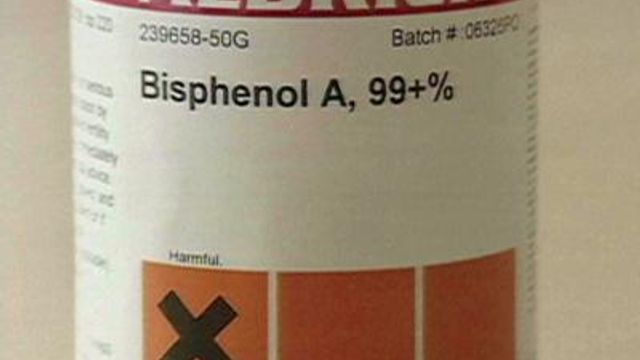Health Team
Study: Chemical in plastic could increase risk of disease
The first human study of the chemical Bisphenol A has shown that exposure may increase a person’s risk of developing heart disease and diabetes.
Posted — UpdatedWhile most people use plastic bottles every day, many are unaware of the chemical Bisphenol A, which is found in many plastic products.
The first human study of the chemical has shown BPA exposure, even at low levels, may increase a person’s risk of developing heart disease and diabetes.
“It is the first evidence we've ever had on ordinary U.S. adults living ordinary lives,” said Dr. David Meizer, of the Peninsula Medical School in Plymouth, England.
Researchers analyzed data from a health survey by the Centers for Disease Control and Prevention. The survey monitored more than 1,400 adults, ages 18 to 74, and their exposure to environmental toxins.
The study showed that the higher the level of BPA in a person’s urine, the higher the risk of developing certain diseases.
“(The) quarter of the population with the highest levels of BPA were more than twice as likely to have diabetes or heart disease,” Meizer said.
Researchers also found adults with the highest BPA levels were more likely to have raised liver enzymes – a condition that stresses the liver.
“The measurements we're making and the findings we're seeing are reflecting a long-term exposure to a very low level over a long period of time,” said Dr. Tamar Galloway, of the University of Exeter.
Researchers said it isn’t clear why BPA may increase health risks, but earlier lab studies in animals showed BPA may disrupt hormonal activity.
Estrogen is affected in particular, “and that might be having some effect on insulin resistance and on the way that fat is distributed in the body,” Galloway said.
The study appears in the Journal of the American Medical Association.
Researchers emphasized this is just one study. The findings add to evidence that BPA may be toxic even at low levels, but further studies are needed.
The U.S. Food and Drug Administration said Tuesday that it thinks plastic bottles are safe.
• Credits
Copyright 2024 by Capitol Broadcasting Company. All rights reserved. This material may not be published, broadcast, rewritten or redistributed.





